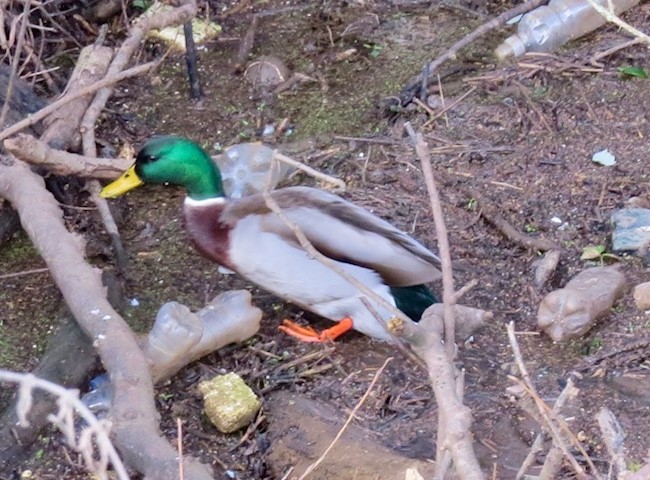by David Hanks of Frampton Cotterell Nature
RIVERS are the lifeblood of our planet, and essential systems for all life on Earth.
In Frampton, our River Frome is an important wildlife corridor and home to many threatened species, including bats, otters and kingfishers.
We’ve been working with staff and students at the University of the West of England to carry out a survey of the river in Frampton.
We’ve been testing the water quality and surveying habitats and species.
We’ve also done outreach work in local schools, to help educate the next generation about the importance of the river and what we can do to protect it.
Our rivers nationally are in a very poor condition – just 14% of English rivers meet good ecological status and all are chemically contaminated.
Our findings show that, unfortunately, the Frome is no exception.
The river is heavily polluted from a variety of sources, including agricultural run-off, road run-off, sewage overflows and plastic waste.
Our testing has found high levels of nutrients and shockingly high levels of bacteria in the water, which are a threat to aquatic life and human health.
In order to change this, we need to improve farming practices and end the scandal of sewage pollution in our rivers. Improving riverside habitats and rewilding our rivers is also key to improving water quality and building resilience to climate change.
Landowners have a particularly important role to play, and can help by improving buffer zones alongside the river.
Ideally, rivers should have a mixture of plants, shrubs and trees extending at least 10 metres from the bank.
Riverside trees provide important wildlife habitat and help reduce pollution, regulate water temperature, sequester carbon and stabilise river banks.
Reconnecting the river to the floodplain and creating wetlands would also reduce pollution, sequester carbon, and help prevent flooding and drought.
The recent sighting of a beaver near the mouth of the River Frome in Bristol suggests one way this could be done.
Beavers are excellent ecosystem engineers – creating wetlands and improving habitats for other species.
Frampton Cotterell Nature are taking action to improve the riverside habitat at the Glebeland, and hold monthly nature volunteer sessions on the fourth Saturday of each month, from 10am until noon.
If you’d like to join us and help restore our local river, contact framptoncotterellnature@gmail.com. Thanks to all our student volunteers, to UWE Bristol and the Quartet Foundation, who have funded this project.


